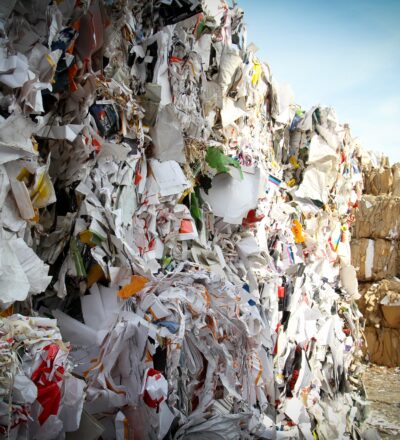In the Netherlands we use about 2,8 million tons of new paper and cardboard every year. Paper is originally made from wood, a renewable resource that is also a carbon sink. In the Netherlands an impressive 84% is also being recycled. But the paper industry is always looking into new promising technologies that can make the production of paper pulp even more sustainable, less energy consuming and more material efficient.
This is why, in 2013 the ISPT’s Deep Eutectic Solvents (DES) cluster was founded. The PROVIDES project, that first researched this new type of solvents, was concluded last year and it is now followed up by the PRIDES project.
Sustainable paper pulping with Deep Eutectic Solvents (DES)
In order to make new paper cellulose fibres first need to be isolated from wood or other lignocellulose. This process is called ‘pulping’ and it normally requires chemical processes like the sulphate (kraft), sulphite or soda process. As an alternative a new family of solvents, the Deep Eutectic Solvents, can offer an interesting ‘green’ alternative to chemical solvents in the paper industry. This type of solvent has the unique ability to dissolve and thus mildly fractionate lignin, hemicellulose and cellulose (the chemical building blocks for paper) at low temperature and atmospheric pressure, making the process more energy efficient.
The PRIDES project will take up where PROVIDES left off
The PROVIDES project, that first researched this new type of solvents, was concluded last year and it is now followed up by the PRIDES project. The aim of PRIDES is to further develop and optimise the technologies developed in the ISPT DES cluster and to bring the scientific findings in novel lignin dissolving DES, DES regeneration and product recovery to a level that is high enough to be evaluated in relation to the traditional pulping and product conversion processes. For this purpose new research to better understand the mechanism behind the successful fractionation by these new natural solvents is needed.
Developing a cost and material efficient process
In the PRIDES project one of the aims is to also come to a total process that is sustainable cost and material efficient. The final goal of the project is to achieve good quality fibres with a 40% lower energy consumption compared to conventional kraft-pulping. Additionally, if the lignin and hemicelluloses can be recovered in high quality this will enable multiple high market volume applications. More applications will lead to business opportunities and competitiveness for the pulp and paper companies. The combination of the production side streams will be suitable as building blocks for biochemicals leading to real CO2 savings by facilitating the conversion of the chemical industry from fossil to biobased materials.
Read more about the PRIDES project.
